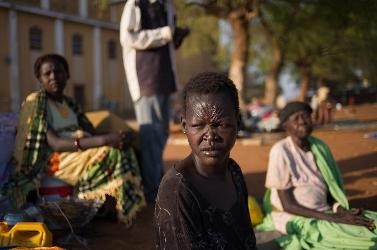S. Sudan facing food crisis as fighting disrupts agriculture: UN
January 14, 2014 (JUBA) – The United Nations warned this week that ongoing conflict in South Sudan threatens to increase hunger and unravel the modest gains made in food security in the two years since the country seceded from the north.

“Timing is everything. There are fish in the rivers now, pastoralists are trying to protect their herds and the planting season for maize, groundnut and sorghum starts in March”, FAO country representative Sue Lautze said from Juba on Monday.
Food agencies are currently ramping up relief efforts in South Sudan as hunger looms for thousands of people affected by the conflict.
Some 355,000 people have been driven from their homes since the conflict erupted in the capital, Juba, on 15 December after clashes between rival tribal factions of the presidential guards.
The incident followed rising tensions between president Salva Kiir and his former deputy, Riek Machar, who was removed from office in July.
The FAO and its partners are seeking $61 million to provide crucial support to vulnerable rural and urban families whose production and income activities are being disrupted.
The UN said the conflict was continuing to affect major supply routes, displacing traders and leading to rising food and fuel prices, along with the breakdown of local markets which are crucial for the livelihood of many rural farmers and fishers.
The prevalence of livestock diseases was also of concern, with animals in some areas dying at a rate of 40 to 50 percent, the FAO said.
“It is essential that security and stability return to South Sudan immediately so that displaced people can return to their homes, fields, herds and fishing grounds”, said Lautze.
According to the FAO, which is headquartered in Rome, even before the recent fighting, some 4.4 million people were already estimated to be facing food insecurity in South Sudan in 2014, with 830,000 of those expected to face acute food insecurity.
Meanwhile, the UN World Food Programme (WFP) has launched a new $57.8 million emergency operation to expand food aid for up to 400,000 IDPs over the next three months, including specialised nutritional support for at risk new mothers and young children.
Aid agencies have expressed concern that ongoing fighting is preventing them from accessing many areas, while looting of humanitarian sites around the country is also hampering relief efforts.
The WFP estimates that 10 percent of its food stocks in the country have been looted – enough to feed some 180,000 people for a month.
There are also fears that the impending rainy season, due to begin in April or May, will further exacerbate the humanitarian situation, with about 60 percent of South Sudan inaccessible by road during this period.
(ST)
